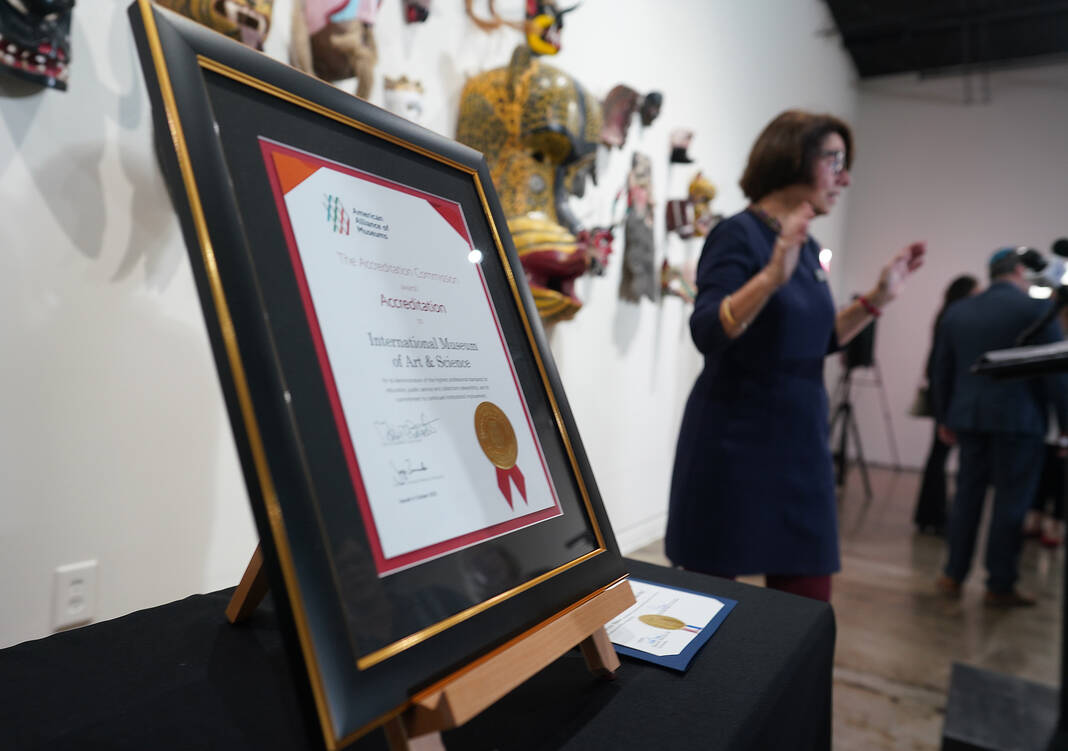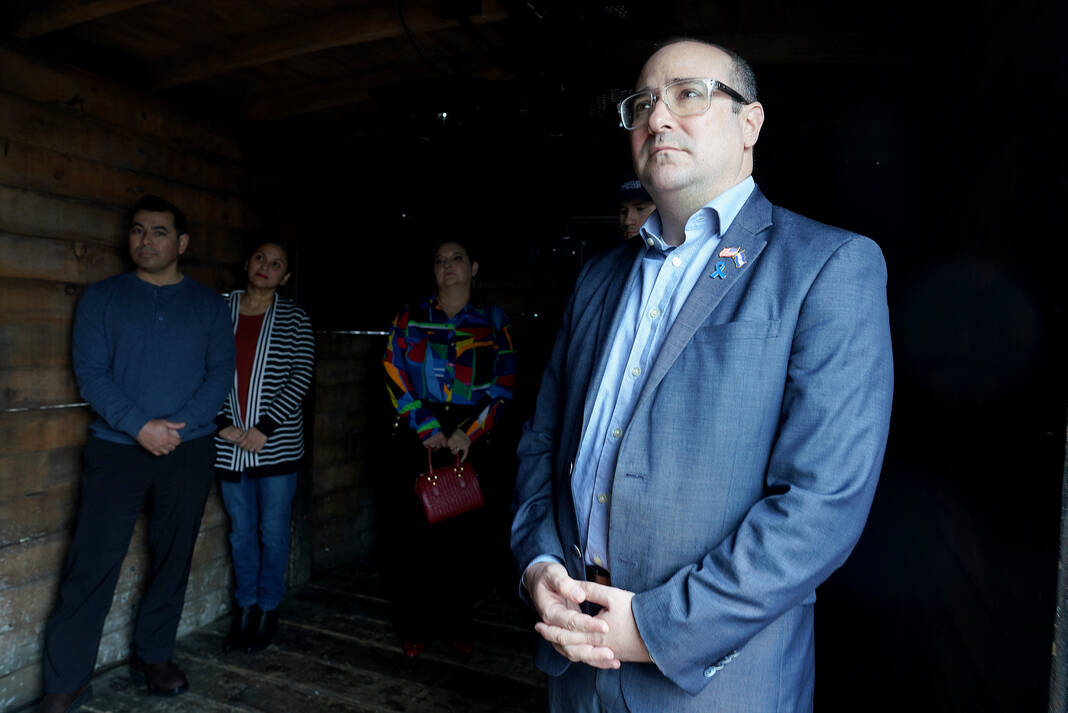|
Only have a minute? Listen instead
Getting your Trinity Audio player ready...
|
McALLEN — Heavy wooden doors to a historically accurate replica cattle car closed on a crowd of about a dozen at the International Museum of Art and Science on Friday and left those inside in a dark void for a few moments.
The lingering overcast skies blocked any sunlight from seeping through cracks in the car, accentuating the already thick darkness as rain fell as a veil over the parking lot.
For a few seconds, all was still and quiet inside. Then projectors on the ceiling of the car turned on and began displaying actor portrayals of Jewish people being taken by Nazis and loaded into similar cattle cars during World War II.
Images of the horror of a generation flooded every corner of the car. Museum attendees were immersed in the experience further when the voices of two Holocaust survivors, Hedy Bohm and Nate Leipciger, filled the silence with first-hand experiences of the genocide of their people.
The residual light from the projectors revealed Rabbi Nathan Farb of Temple Emanuel standing in the center of the room with his arms crossed. Throughout the short exhibit, he could be seen wiping away tears — digesting every word from the two survivors.
The doors slid open at the conclusion of the video, and the occupants walked out of the car into the rain as another group waited for their turn to view the new, limited exhibit, “Hate Ends Now: The Cattle Cart Exhibit”.
“Hate Ends Now” is a traveling exhibit that has been making its way throughout the state. It features a 30-minute, 360-degree presentation for groups of 20 to 30 people at a time. Unfortunately, the exhibit is only in town for two days, and all available spots to experience the exhibit were filled almost immediately.
“It’s a powerful exhibit, and sharing the personal stories of folks who lived through it who were lucky enough to live through it makes it personal for I think all of us,” the rabbi said.
He said that being inside the replica cattle car put things into perspective for him, especially feeling how small the car felt with only about ten people yet knowing that during the Holocaust, any one car could be filled with over 100 people.
“It really demonstrates the impact,” Farb said. “And this was not even the worst of what they experienced. This was the beginning of the tragedy that they were going to experience. But it makes it tactile and it makes it more real, more distinctive and memorable for the folks who go through the exhibit.”

IMAS Executive Director Ann Fortescue said that the area is “hungry and more curious” for more exhibits like “Hate Ends Now.” She said that while this particular exhibit demonstrates events that occurred in Europe during World War II, the repercussions of those events continue to be felt throughout the world to this day.
“We’re often drawn back to the Holocaust during World War II as a learning example,” Fortesque said. “I think one of the signature roles of museums is to provide experiences for people to learn through objects and experiences that, that provide an opportunity to reflect on what’s come before, understand these sort of events or movements in the past, see where we are today and how those perhaps still still resonate, and then think about the future that we want to have that isn’t yet with us.”
Fortescue’s work, along with that of IMAS’s staff, in bringing exhibits like “Hate Ends Now” and curating culturally relevant exhibits are among the reasons why the museum received re-accreditation honors by the American Alliance of Museums (AAM).
A brief ceremony was held Friday morning prior to the “Hate Ends Now” exhibit opening.
Marise McDermott, who serves as chair for the AAM Accreditation Commission, was on hand for the re-accreditation program and commended the museum for the role it plays in the community.
“It’s very rare, and they have done an extraordinary job of all the codification and all the development of the core documents, but also just sustaining an outstanding museum for these really important artifacts and specimens that they have and more,” McDermott said. “Most important is to provide a place for children to get excited about culture and science. That’s a daunting job, and they do a great job.”
The museum is one of 40 museums recognized by AAM with accreditation honors by the Accreditation Commission during its October 2023 meeting. The accreditation makes IMAS one of 48 museums in the state to hold the distinction. Currently, only 1,106, or 3%, of the estimated 33,000 museums throughout the country hold AAM accreditation status.
IMAS has been an AAM accredited museum continuously since 1972.
“I used the word ‘momentous’ to describe today because receiving American Alliance of Museums re-accreditation is a recognition and a mark of distinction for the museum but also for the community,” Fortescue said afterward. An accredited museum is one that is operating at the highest professional standards, and among those professional standards is being engaged and relevant with your community.”




